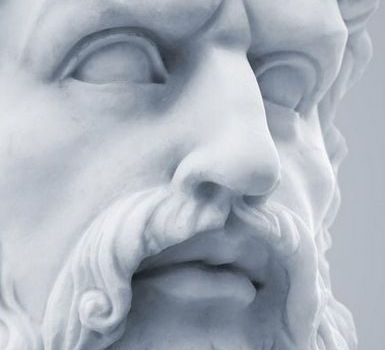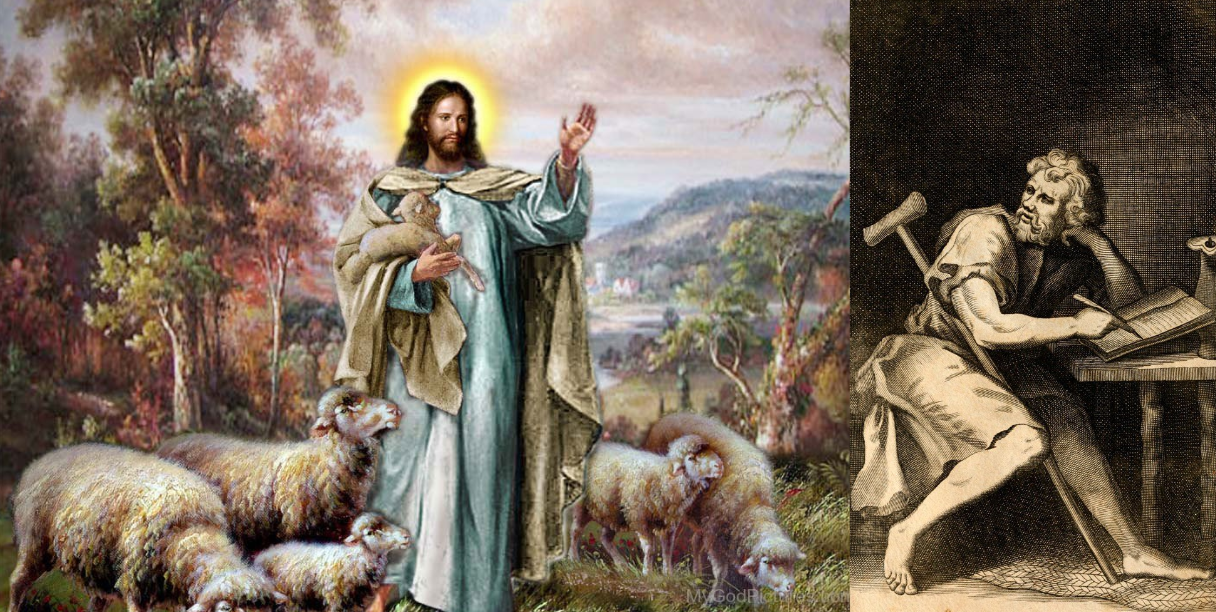Most religions love putting God in a box of their own design; believing that one particular faith is right, which means others have to be wrong. This idea has been used to justify hate, promote harm, or even led to the murdering of others because they don’t see our small box God like we do. It’s like as Richard Rohr once said, “We are all pointing toward the same moon, and yet we persist in arguing about who has the best finger.” Over 2,000 years ago Epictetus realized that we are not isolated entities. We are, as he put it, “a unique, irreplaceable part of the cosmos.” We are all part of the same puzzle so to speak. It’s our life work to “look for and come to understand your connection to other people.” Some people find their place in employment or career choices. Others, it’s in community or citizenships. And then there are those connected by a set of beliefs or proximity or family. But for most of us, it’s a mixture of many different connections that we find ourselves, discover our duties and learn our responsibilities. “Once you know who you are you will know what to do.” Rohr often refer to connection as our ‘oneness.’ This is an idea that Catherine T. Nerney believes “is less a goal toward which life is pressing, as it is a return to the truth in which we have always been held.” That is to say, we are one energy that is part of one source. Thus someone like Jesus could argue, “I and the Father (God) are one.” Epictetus wrote, “If a man is your father, for instance, certain emotional and practical claims follow from it. That he is your father implies a fundamental, durable link between the two of you. You are naturally obligated to care for him, to listen to his advice, to exercise patience in hearing his views, and to respect his guidance.” But what does this all mean for us today? In our highly divisive world, where politics have wreaked havoc in communities, families, and friendships, understanding our greater connection – our place and responsibility – is of upmost importance if we are going to evolve as a human race towards our higher purpose in life. We have to not only recognize ourselves but our relationships with one another. What action is happening in that space between me and you? Hatred? Or love? Just the other day I had a similar conversation with a very good friend who was talking about a podcast on the “space between” that led to so many new and breakthrough discoveries in quantum physics. Without boring you of all the wonderful breakthroughs we had, I will just summarize one point in particular. I’m talking about how we are all inner connected, this oneness that we all a part of, Gianni said “It’s like we are tethered together by one long string. Imagine if we could see that string.” This lead to a headful of questions like, how would we move around each other? How much more mindful would we be of one another and our connection to each other? Imagine if our words were also connected, what would they look like? What kind of web would we find ourselves in? Two great thinkers, Jesus and Epictetus, point at the same moon and instead of arguing who has the best finger they help us to see the moon from different (and yet the same) perspectives.
Epictetus was not a Christian, and yet he upholds many of its tenets. He wrote, “When you are faithfully occupied with performing the acts of a wise and decent person, seeking to conform your intentions and acts to the divine will, you do not feel victimized by the words and deeds of others.” Jesus taught that the righteousness of God is lived out in the way we love one another, care for each other’s needs and to make sure everyone has what they need. In doing so, your needs will be met. Two different views of the same string. Epictetus invites us to think about those in our own communities and those outside of them. “Suppose you have a brother or sister who treats you poorly. What difference does that make? There is still a moral imperative to recognize and maintain your fundamental duty to him or her.” This reminds me of the story Jesus told about a man left robbed and nearly beaten to death on the side of the road. Of all the people who walk past, it was the Good Samaritan which was, at the time and to the audience listening, the unlikeliest of peopel to be the hero. Jesus too makes the point that it is our moral imperative to help one another, especially someone we might not want to help. I like to think both men would see someone thirsty and offer them something to drink, or give food to someone who is hungry if for no other reason that we are all tethered to the same string. And the harder you try to avoid helping someone the more twisted you become. It does not matter that both men had a different name for that string. This puts the focus not so much on the string, which is important, but on how we move knowing we are delicately tied to the other. Imagine how careful one must step to avoid getting tangled up. Now imagine your words also being tethered to the same string. Every word would have to be carefully thought out and spoken to avoid becoming twisted into one gigantic knot. Epictetus was wise to suggest that it’s not wise for us to focus on the other but on yourself, and your purpose, to keep from getting knotted up. The way I see it, the more we try to exert power over another, to have the dominate opinion or the need to be right, only tightens the knot. Like it's the strings way to make us deal with one another beyond fighting or killing each other. This is what oneness is all about. It's almost as if God is saying stop fighting over who is right, which religion is the right way, but instead simply be bound to the divine love that is what we are made from and made of. Perhaps instead we should have an open heart to receiving that love. Perhaps we should have a little Holy Envy, to recognize and be envious of all the wonderful things we can learn from each other. Like Taylor’s book aruges, this idea that other faith traditions (like other human beings) connect us to new truths about who we are and what we are called to do. An Amazon review of her book notes, “The one constant in her odyssey is the sense that God is the one calling her to disown her version of God—a change that ultimately enriches her faith in other human beings and in God." The string Gianni imagined has a different name to him as it does for me, as it does with so many others – God, Allah, YHWH, Big Bang, Energy, DNA. Each of these names offer different ideas that lead to the same result, deepening my faith and expanding my heart to do what we are all called to do. In her book, Taylor uses a great analogy from another Catholic priest and theologian I admire. It comes from Raimon Panikkar who looks at the world’s great rivers to speak to our inner connectedness. The Jordan, the Tiber, and the Ganges “all nourish the lives of those who live along their banks. None of these rivers meet on earth, though they do meet in the heavens, where water from each of them condenses into clouds that rain down on all the mortals of the earth.” To Panikkar's point, the religions of the world remain distinct and unmixed on earth—but “they meet once transformed into vapor, once metamorphosed into Spirit, which then is poured out in innumerable tongues.” God, Allah, YHWH, Cosmic Energy all moving towards one particular goal, for one divine purpose. I am not a scholar of Stoicism, but I do believe both Epictetus and Jesus recognized their respective commonality to every human, no matter who they were. I do know, according to Scriptures, that Jesus hung out with poor and rich alike, with people who were Jews like himself and those who were not. He preached on the virtues of helping strangers, foreigners and even one’s enemies. He lived without fear of the other but embrace them willingly knowing that he was also tied to them, through the Divine. In the way Jesus lived his life, he was able to teach us what God is like – that “God is love.” Once we are aware of that string, that love, then we can trust in that love, allow it to flow in and out of us, and delight in all that it is. When we practice that love, we are tied to the love of others by the same string of divine love. Like Rohr states, “The whole thing is one, just at different stages, all of it loved corporately by God (and, one hopes, by us). Within this worldview, we are saved not by being privately perfect, but by being “part of the body,” humble links in the great chain of history.” I am sure Epictetus would agree that if we could only see the string that ties us all together, human beings might discover who they are and who they are called to be. One people, one love, for one purpose – to be tangled up together in love. Some of the Work Cited can be found here: Epictetus, The Art of Living, new interpretation by Sharon Lebell. Harper-Collins: 1994, p. 42-43. Rohr, Richard. www.cac.org/living-word-god-2018-01-17 Taylor, Barbara Brown. Holy Envy, Finding God in the Faith of Others. Harper One: 2020,. Kindle ed.
0 Comments
Leave a Reply. |
Ian MacdonaldAn ex-copywriter turned punk rock pastor and peacemaker who dedicates his life to making the world a better place for all humanity. "that they all might be one" ~John 17:21“Prius vita quam doctrina.”
~ St. Thomas Aquinas (1225–1274) * “Life is more important than doctrine.”
Archives
June 2024
|

